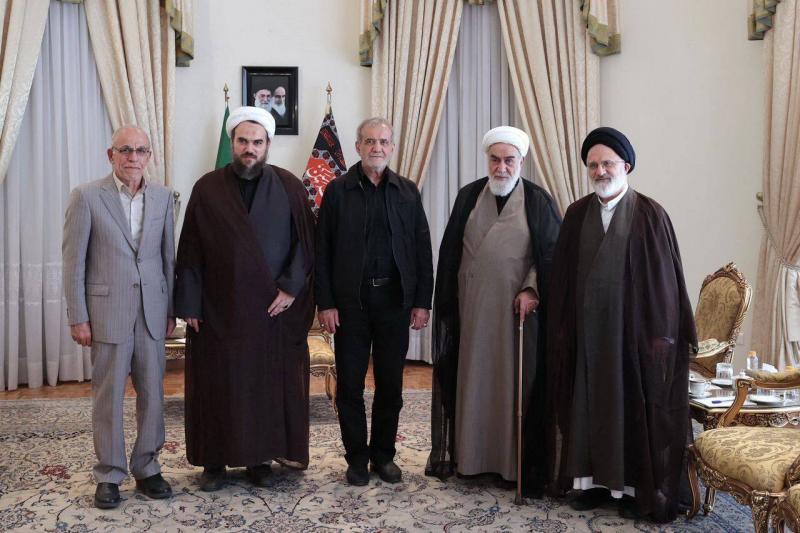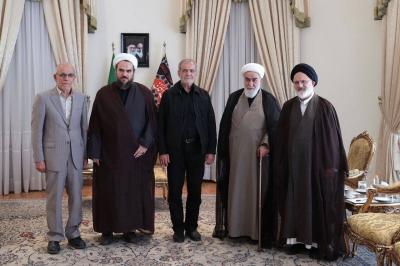The relationship between the newly elected Iranian President Masoud Bzeshkian and the ruling institution appears to be more harmonious than that of his reformist and moderate predecessors, even more so than that of former President Hassan Rouhani and his team, who faced significant pressures, especially in foreign policies. Despite his success in achieving the nuclear agreement, deep disagreements continued with external influencers who constrained most of the regional opening policies he planned. These constraints or prior conditions seem to be something that some stakeholders are willing to engage with flexibly, in order to create space for Bzeshkian to achieve some of his goals that align with their interests.
Since his election, Bzeshkian has been trying to convey his messages in various internal directions that have external interpretations. He aims to present his election as a turning point in the inclinations of the ruling institution that governs the state and the system. He bets on the possibility of a swift response to some of his urgent internal messages, due to the need to address the deteriorating economic and social situation. However, it is clear that the external keys are not in his possession, nor is he allowed to have them in the first place, especially since the owner of these keys is heavily defending his spheres of influence and is making every effort to protect them, remaining unwilling to compromise despite facing severe blows. Maintaining these spheres, especially as it becomes costly for both Iranian domestic and foreign affairs, is not an easy task.
Therefore, Bzeshkian and his diplomatic team may consider this an opportunity to think about leveraging this external influence, which is seen negatively by nearby countries, and turning it into a positive role with increased flexibility towards neighboring nations. This would inevitably yield significant benefits for the state and the system, should the relevant stakeholders be convinced of the possibility of taking constructive steps to help Bzeshkian translate his good intentions into tangible realities.
However, the leniency in regional and international foreign policies that Bzeshkian seeks, which is met with some limited flexibility from parties involved in these policies, particularly regionally, does not align with the negative realities facing the regional situation and its serious implications for stability. This is primarily due to the fundamental linkage to the potential expansion of the Israeli war against the Palestinian people beyond the Gaza Strip, and the transition to a broader regional confrontation or war with Iran and its proxies. This concern is amplified by the ongoing escalation on the Lebanese front, which expands daily, increasing the risk of it turning into an open war against Hezbollah or a comprehensive conflict in Lebanon. This is further complicated by the escalation on the Yemeni front, where, following the Houthi drone strike on Tel Aviv and the expected Israeli response, the entire region may be headed towards an international confrontation that differs geopolitically, geo-strategically, and geo-economically from the situation with Lebanon, where its repercussions remain mostly limited to Lebanese geography, with a slight possibility of extending minimally to Syria or Iraq. Meanwhile, the confrontations in the Red Sea and the Gulf of Aden cannot have their implications confined to regional and international stability.
This grim regional scene, threatening devastating wars and geopolitical transformations in international relations, complicates the mission for Bzeshkian and his diplomatic team, even if there are genuine intentions, will, and real support from the ruling institution. This file is confined to the house of the Supreme Leader and the apparatus charged with its execution, specifically the Quds Force of the Revolutionary Guard, which practices a policy independent of all state apparatus and institutional frameworks, including the Revolutionary Guard itself. Currently, it finds itself in sensitive circumstances, wanting nothing more from Bzeshkian than to stall and buy time until it can discern the white thread from the black thread regionally and internationally.




